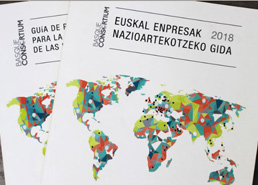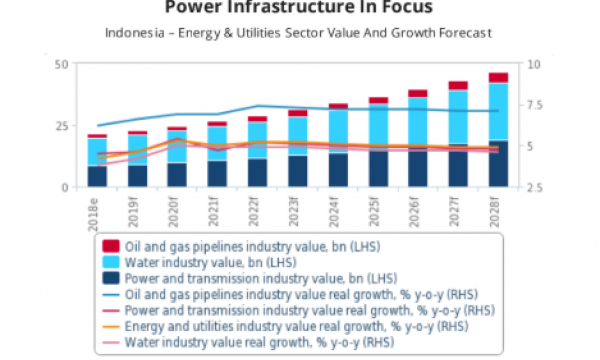Indonesia’s power generation and transmission sectors are expected to be the primary drivers of growth of the overall energy and utilities sector. The generation and transmission sectors could grow 4.9% annually.
The generation and transmission sectors could grow 4.9% annually. Indonesia’s power generation and transmission sectors are expected to be the primary drivers of growth of the overall energy and utilities sector, according to Fitch Solutions. Fitch forecasts that the overall energy and utilities sector will grow at an average of 5% per year over 2019 to 2028, mainly driven by the generation and transmission sectors, which could grow 4.9% every year over the same period. In terms of energy resources, coal will still be a dominant source for the country’s energy mix, given the widespread availability of coal reserves and easy access to coal-related technology, Fitch said.
Coal is projected to generate an annual average of 61% of total electricity output over the course of their ten year forecast period through 2028, owing to a large pipeline of coal projects worth $30b.Although not the same as coal, natural gas is expected to remain an integral part of the country’s energy mix as it is expected to contribute to approximately 22% of the country’s electricity generation over 2019-2028.
The country’s hydropower sector on the other hand is seen to be strong in the short to medium term, with planned projects worth more than $2.5b. Fitch reckons that current hydropower projects are located in Kalimantan, where the Kayan Hydropower station will have a capacity of 9,000MW.Although expected to grow at a slower pace, Fitch projects that the non-hydro renewables sector will contribute to a significant proportion of the overall growth of the non-hydro renewables sector in the next decade.
In a bid to further encourage development in the geothermal space, the Indonesian Ministry of Finance had, in September 2019, introduced a geothermal drilling program that aids in risk mitigation of projects, with the eventual goal of attracting more private investment. A deal has also been struck between the World Bank and Indonesia for a $150m loan to support growth of the country’s geothermal energy sector. In the transmission sector, the government aims to extend the electricity network to more than 2,500 villages to improve access to electricity. Included in the latest RUPTL are plans to add 57,293km of transmission lines, ranging from 70kV to 500kV, and install substations with 124,341MVA of transformer capacity.
+info https://asian-power.com/



